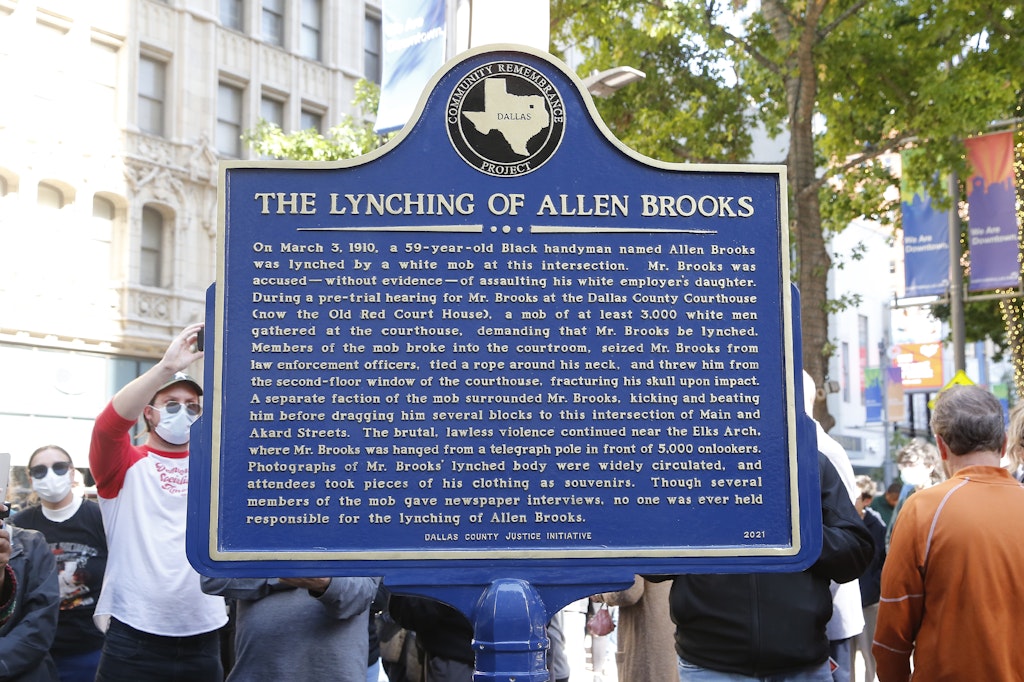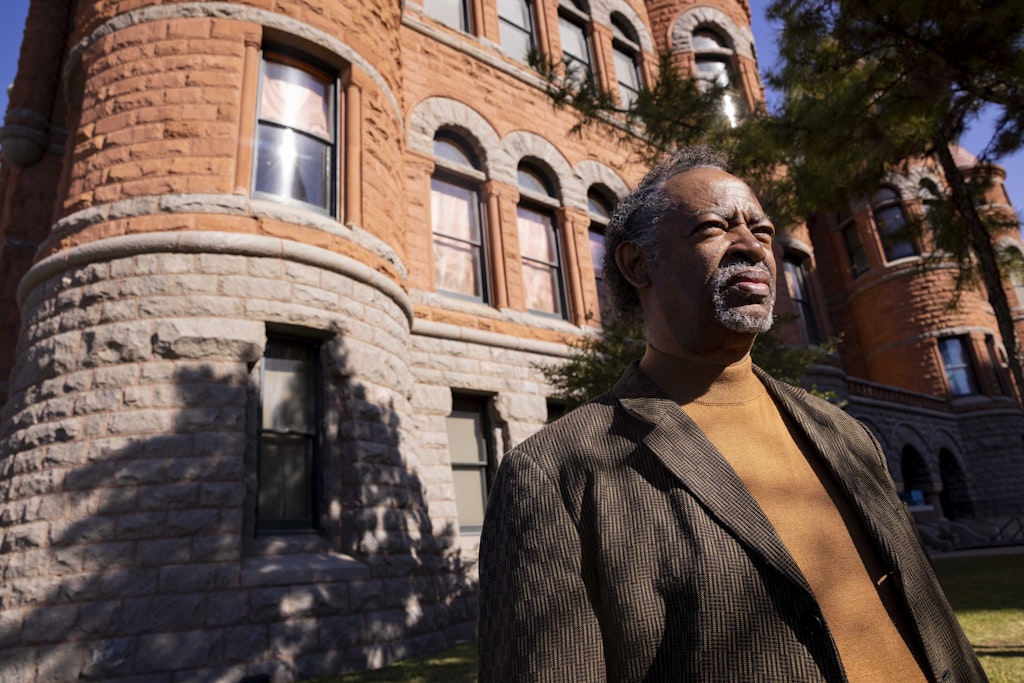
There were few people in Dallas who combined a gentle, loving spirit with a fierce determination so gracefully as George Keaton Jr. did.
The founder of the organization Remembering Black Dallas was a kind, soft-spoken man who simply refused to let this city forget a brutal, racist past that literally shaped, and still shapes, our streets and neighborhoods.
Keaton’s death at 66 this week after a brief battle with cancer was a shock. Dallas has lost a champion of truth and history.
If you happen to be downtown, you should stop at the corner of Main and Akard streets, where you can read for yourself what Keaton helped do for Dallas. There stands a memorial to the 1910 lynching of Allen Brooks and to the history of lynching throughout Dallas County and Texas.
“To speak to lynchings in Dallas, we know that they took place in this very city and a lot of people don’t realize that lynchings happened in the very space that we walk down each day,” he told us in an interview last year.
Forgetting the past risks repeating it, and Keaton was intent on ensuring we don’t forget the name of Allen Brooks.
Keaton’s interest in Dallas’ Black history extended beyond the terror of lynchings and the injustice of racism. He also celebrated the beauty, richness and joy of Black life in the city. His book with historian Judith Garrett Segura, Our Stories: Black Families in Early Dallas, traces the memoirs of some of the city’s earliest Black families.
That history is who we are. Our neighborhoods from Deep Ellum to State-Thomas to South Dallas and beyond are shaped by Black history and by the segregation that was imposed on a people for generations.
Keaton was, first and foremost, a teacher. He spent much of his life helping children and young men and women understand the past. After his retirement, he became a teacher for us all.
His passing comes with great sadness but also the deepest gratitude for what he gave to Dallas.
